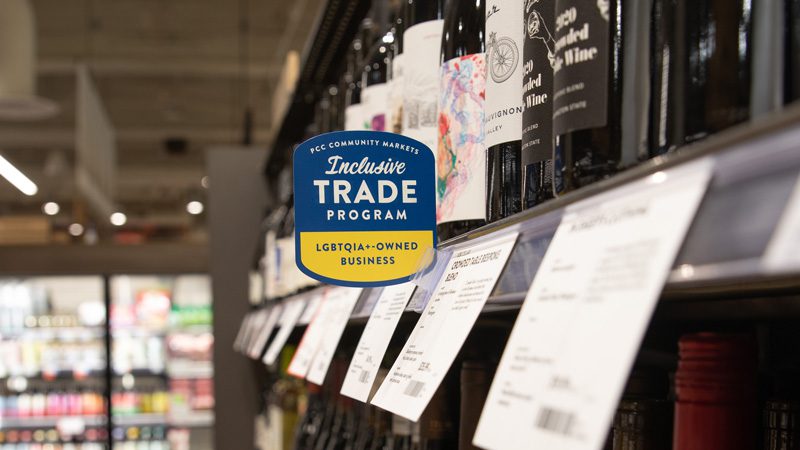PCC launches Inclusive Trade Program
This article was originally published in June 2023

A new PCC program and supporting standard will make it easier for shoppers to support suppliers from historically and currently excluded communities.
Qualifying producers who choose to participate in the Inclusive Trade Program will have store tags placed by their products, along with other avenues to highlight and celebrate their businesses. The optional program is meant to increase awareness and support for businesses owned by people who have typically faced disproportionate discrimination, with shoppers in turn getting the option to select products from communities they wish to support or see themselves represented in.
Owners can self-identify as belonging to one or more of the program’s categories, currently including Women-Owned; Black, Indigenous, and People of Color (BIPOC) or Person of Color (POC)-Owned; Lesbian, Gay, Bisexual and/or Transgender (LGBTQIA+)-Owned; Veterans and Service-Disabled Veterans-Owned; or Persons with Disabilities-Owned. There is also an option for suppliers to opt into the program without specifying a category. To qualify, businesses must meet PCC’s other product sustainability standards (such as those governing animal welfare, genetically modified ingredients and fair labor), and must be at least 51% legally owned, operated and controlled by people who identify as being a member of one of the listed categories.
“As a result of historic and continued prejudice, these communities are deliberately disadvantaged and face barriers in starting businesses and expanding market share,” said Justine Johnson, PCC’s senior director of merchandising. Inclusive Trade is one step in acknowledging PCC’s own role in systemic and historical exclusion of people from these communities and others, she said, and an important one given the co-op’s mission of ensuring that good food nourishes the communities we serve while cultivating vibrant local, organic food systems. “We have a long journey ahead to create lasting change, and PCC looks forward to continuing to learn from our suppliers, members and broader community on how to improve and evolve our program,” she said.
The program follows in the footsteps of one founded by the National Co+op Grocers (NCG) in 2022. For enrollment in PCC’s program, vendors must complete an affidavit verifying that they meet the program requirements. Non-local suppliers are required to obtain a certification from an agency that certifies businesses as owned by individuals from historically and currently excluded communities. In an effort to minimize barriers to enrollment, local vendors only need to fill out the checklist, but they do not need to be certified. That checklist will also serve as a way for PCC to gather feedback on the program and identify opportunities for improvement.
“PCC has always been committed to elevating people and planet-minded products,” said Aimee Simpson, PCC’s former senior director of sustainability, advocacy and standards. “Forging better pathways for a more inclusive marketplace helps create a more equitable food supply system for all.”
For full details see the standard online here.
